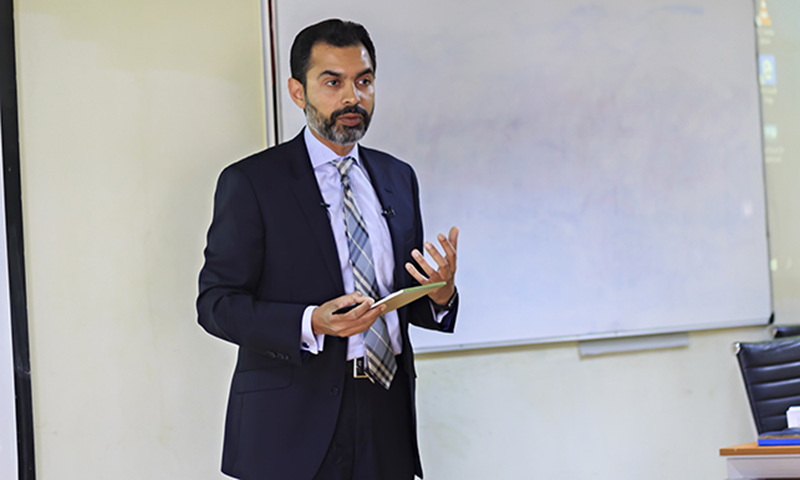KARACHI: State Bank of Pakistan (SBP) Governor Reza Baqir has said that widening the tax base, facilitating exporters and a good relationship with the international community will stimulate the economy on the growth path.
Speaking to Dawn on Friday, he said that Pakistan’s economy is in a relatively stable position compared to last year as the government and central bank have introduced measures aimed at fixing the fiscal and current account deficits.
“We are also gradually moving away from a fixed exchange rate regime towards a market-based one, however the SBP will continue to monitor currency markets and intervene in cases of unjustified rate movements,” he added.
Pakistan and the International Monetary Fund (IMF) had reached a staff-level agreement for $6 billion loan after long negotiations and according to Baqir, the IMF board is expected to announce its final decision on the bailout on July 3.
The government has complied with all ‘prior actions’ recommended by the IMF, he added.
With pre-emptive rate hikes and currency devaluation, the markets are still uncertain as to whether the worse is yet to come.
“We are done with it [difficult decisions],” he explained, adding that most of the government and SBP have taken difficult decisions and there is no cause for further uncertainty in the financial markets.
“I am confident that we have achieved relative stability compared to where we were just six months ago,” adding that adjustments by SBP and government are in line with IMF’s recommendations.
Baqir, a former IMF economist, also pointed out that the budget 2019-20 was in tandem with the overall strategy of the SBP and the government to ensure macroeconomic stability.
The government in its budget announced an ambitious revenue target of Rs5.555 trillion for the next fiscal year and has also curtailed expenditures in the development, education, health and housing sectors.
Answering a question on rising inflation as an offshoot of increasing reliance of the government on SBP to finance deficit, he said that “With the IMF agreement in place, funds from other bilateral sources are also expected to follow which will decrease the government’s reliance on SBP to fund the fiscal gap,” he explained.
Currently the government has no other option but to either borrow from the central bank — ie print more money, which subsequently results in inflation — or from commercial banks at the peril of decreasing private sector credit, he added.
He said the central bank and the government have undertaken stabilisation measures to address the external as well as fiscal imbalances.



